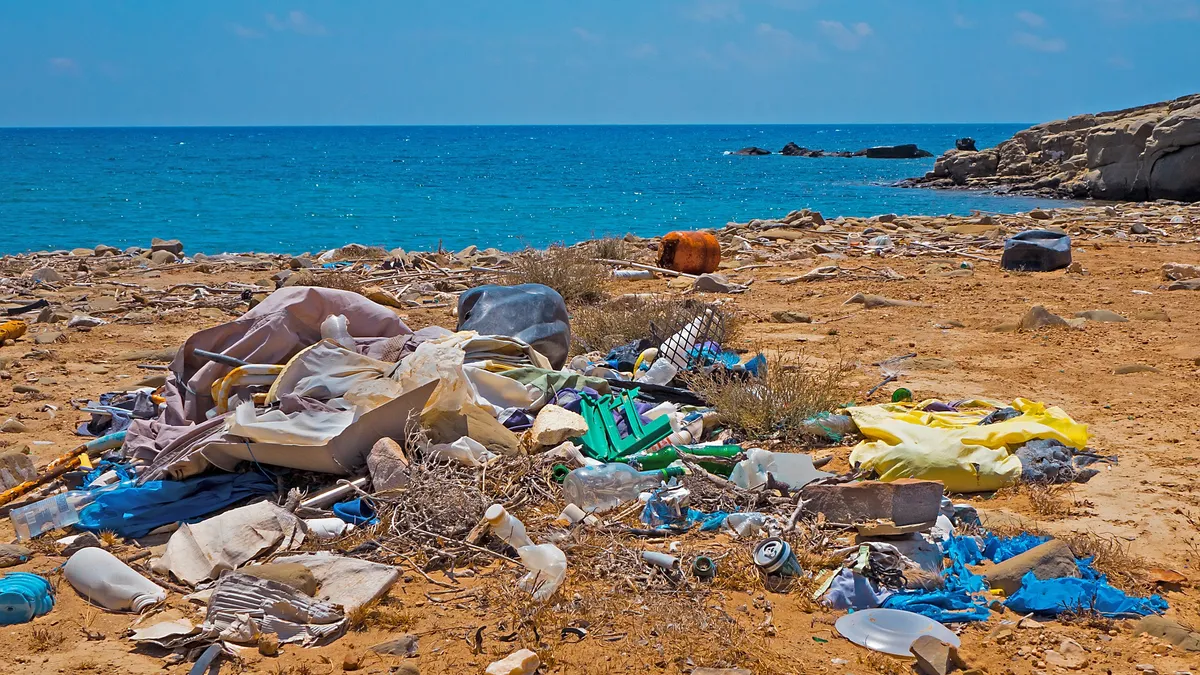Dive Brief:
- The World Wildlife Fund (WWF) has launched ReSource: Plastic, a new activation hub that serves as a roadmap for companies to take meaningful and measurable action on large-scale commitments to curb plastic pollution.
- ReSource intends to ensure a systems-based approach in helping companies identify concrete changes to reduce plastic pollution. It will provide tools and methodologies for reaching corporate targets, including fostering collaboration with and among participants, along with best practices and action plans.
- The project will also help track and publicly report participants' progress on the amount of plastic waste prevented each year. Thus far, six companies — Coca-Cola, Keurig Dr Pepper, McDonald's, Procter & Gamble, Starbucks and Tetra Pak — have signed on as principal members.
Dive Insight:
Companies — along with industry associations, nonprofits, advocacy groups and governments — are increasingly making commitments to reduce plastic waste in the environment. But unless they make good on achieving their stated goals, those commitments may remain empty promises. Determining how to achieve these targets and where to start can be tricky, and ReSource intends to remove some of the barriers by helping companies find scalable and impactful solutions. Given the rise of industry and investor-driven marine plastics initiatives, there are a growing number of ways to participate.
"To get closer to our goal of no plastic in nature will take nothing short of transforming the entire value chain," WWF Chief Conservation Officer Nik Sekhran said in a statement. "With ReSource, companies now have access to more advanced tools to maximize, measure and multiply their commitments to make this a reality."
WWF has estimated participation from just 100 specific companies could help prevent approximately 10 million metric tons of plastic waste — or more with outside collaboration — and more transparent reporting could help make progress in that direction. The Ellen MacArthur Foundation’s New Plastics Economy initiative recently released a new report with new disclosures on broader plastic usage by major companies, but because many abstained from sharing data it remains hard to identify clear areas of opportunity.
Plastic packaging manufacturers and companies that use packaging to house their products have become more vocal in maintaining that successful plastic waste solutions require collaboration among all players, including end users. Consumers drive demand — including for recyclable products and recycled content in products — which prompts manufacturers to take action on reworking product designs. That, along with material import restrictions from China and other countries, has resulted in a new wave of domestic recycling end market development.
WWF notes growing global attention to reducing plastic waste, evidenced by last week's amendment to the Basel Convention, a treaty designed to reduce the global trade and movement of hazardous waste. The amendments impose restrictions on plastic scrap trade, requiring exporters to receive consent before shipping contaminated or mixed plastics. While the U.S. withheld support for the treaty amendment, domestically-based plastic scrap exporters are certain to feel the effects — although to what degree has yet to be determined.
Correction: A previous version of this article misstated the World Wildlife Fund's name.















